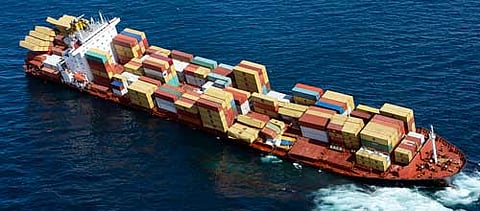

Both the master and second mate of the 'Rena' were at risk of mild fatigue impairment at the very least during the period immediately preceding the grounding of the container ship on the Astrolabe Reef on October 5, 2011.
Such is the reported determination of the Australian Transport Safety Bureau (ATSB) after analysis of sleep and work data supplied by New Zealand's Transport Accident Commission (TAIC).
The ATSB found that the master's sleep and work schedule placed him at significant risk of fatigue impairment during the days preceding the accident. This was due to the time of day for both work and sleep, sleep duration and sleep fragmentation effects.
It also found that although the second mate had adapted to the night watch schedule, the extent of adaptation was not sufficient to overcome the time-of-day effects on performance during the midnight-to-6am work periods.
The TAIC is also undertaking a formal investigation into the grounding.
Meanwhile, Bay of Plenty Regional Council chief executive Mary-Anne Macleod has reportedly announced her organisation has decided to refer the application for resource consent to abandon the stern section of the 'Rena' on the reef to the Environment Court.
Given it appeared likely that any decision made by the regional council would be appealed by at least some of the 152 submitters, Ms Macleod said it made no sense to impose duplicate costs on those who wish to appear in person. The decision also saves the regional council from the cost of holding its own hearings.
Iain MacIntyre
Image Source: New Zealand Defence Force
